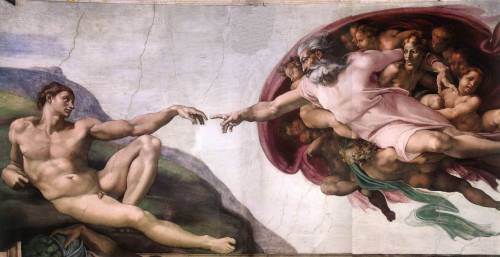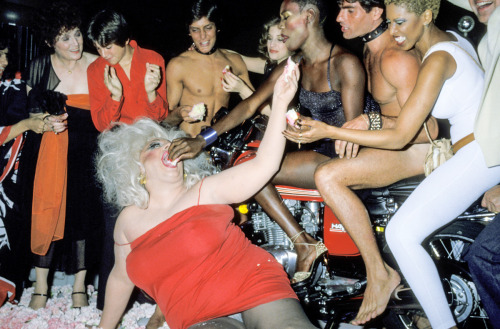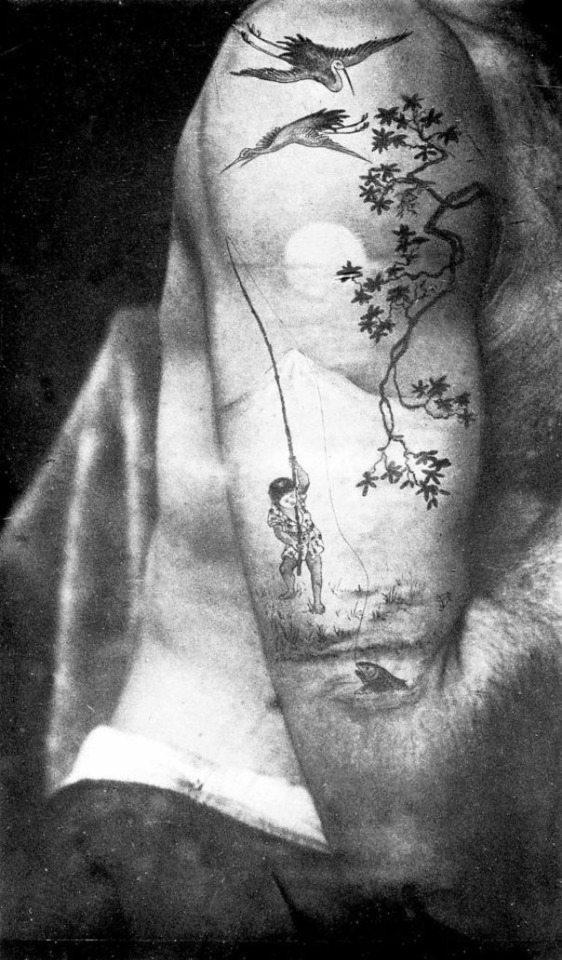As Im Rereading Crime And Punishment One Of The Things That Makes Me Remember Why I Love This Book So
as im rereading crime and punishment one of the things that makes me remember why i love this book so much is that it takes the whole "brooding male character is too intelligent for the surrounding laymen, his lack of empathy makes him more masculine, he is above the average person" male fantasy and flips it on its head. raskolnikov wants to believe he's all of these things. he wants to believe that he's already so detached from society that he's above it and beyond saving. that he's already a bad guy, that it's just a burden he'll have to bear, and that if he's gonna alienate himself he might as well play the part of the monster. he might as well commit murder (both to prove that he can do it, and to lift himself and potentially others from financial hardship) because he knows he can put himself into a logical mindset since he believes he's so good at turning off his emotions. he won't feel any guilt or compassion, right? he's a step above human, right? so he must be the perfect sacrificial lamb to bear the burden of murder.
but he's not. and the book is just him constantly betraying himself. he wants so badly to believe that he's capable of cold-blooded premeditated murder, and that he's capable of putting his humanity aside for the "greater good." he swings between considering himself a sort of superman for his ability to commit murder, and considering himself scum of the earth for even thinking of such a thing. he never just considers himself human. but the problem is that he is human, and he's a lot better of a person than he wants to admit. he's absolutely full of contradictions. in the same breath as cursing himself for being crushingly poor, he gives away his remaining money to children in need--despite it logically putting him in a worse financial situation. within the same hour he kills an old woman with an axe, after he nearly gets home, his first instinct is to go out of his way to return the axe to the worker he borrowed it from, cleaned up and in the same position he found it--despite him acknowledging that returning it was much riskier than just getting rid of the axe somewhere else.
raskolnikov paradoxically wants to commit the perfect crime, and get recognition for it. but as soon as it's recognized, he's no longer gotten away with it. with recognition comes confession, and with confession comes the realization that he's just not the guy he thought he was. he's not some ultra cunning, heartless, cold-blooded mastermind. he's not the napoleonic figure he admired. he's not a cardboard cutout of solid logic and reason 100% of the time. he physically falls ill from his own mental battle ffs. no matter how much he plans the murder, he still panics. no matter how much he tiptoes around conversations after the murder, he still feels guilt. no matter how much he isolates himself from his friends and family for the sake of self-crucifixion, he still allows himself to be fed soup by them, one spoonful at a time, while they gently blow on it so that he does not burn himself.
he's driven by emotion just as much as logic. the biggest problem with raskolnikov is that his humanity far exceeds his own expectations. and learning that redemption is possible is scary, because it means learning humility and taking accountability for oneself. having something to live for and improve toward is as much of a heavy nuisance as it is an honorable goal. only a person with some amount of goodness can recognize that and still choose to undertake that task, regardless of how logically inconvenient it is. and raskolnikov is, unfortunately, a much better person than he thought.
More Posts from Josephsapha and Others



this is a spider's world and we're just living in it
spider names:


and no Jon cannot actually tell them apart
It is November of 1893. You have just killed a vampire. Exhausted and worn, you close your eyes and rest.
You wake up. It is May of 1893. You are on a train en route to Transylvania. Your diary says you have had queer dreams lately.
You try to believe it.
(An old woman puts a rosary in your hands. You accept it without question.)
You are a guest in a castle you have never been in before (you recognize every hallway and know without trying that every door is locked). Your host is a man you have never met before (you killed him you killed him you killed him he had turned to dust and there was blood on the snow).
One morning you cut yourself while shaving.
There is nobody behind you in the pocket mirror’s reflection.
You turn fast, and the razor is like a Kukri knife in your hand.
also i literally have zero coherent thoughts about atsushi rn. i hate you and i want you out of my head, i've wanted that for so long. the softness in the way the headmaster smiles at him and says, i'll be gone. your sort-of-father who was cruel to you and who cared about you (never in ways that justified what he did to you, but never quite the monster you wish he was, either) and who haunts you and who gave you the same things that kept him alive and didn't know how to give you better. you know. the way the headmaster's death and the fact of the headmaster's humanity slices atsushi open in both universes— you hate him, and still. and still.
having sex with your friends is so very normal please stop poisoning the youths minds with shame surrounding hooking up with your friends. especially if you’re gay



the fact that this matches their faces exactly
-
 weneverdream reblogged this · 2 weeks ago
weneverdream reblogged this · 2 weeks ago -
 cinnamonblueberry22 liked this · 3 weeks ago
cinnamonblueberry22 liked this · 3 weeks ago -
 axemartyr liked this · 1 month ago
axemartyr liked this · 1 month ago -
 minerva-files reblogged this · 2 months ago
minerva-files reblogged this · 2 months ago -
 lunardotjpeg liked this · 3 months ago
lunardotjpeg liked this · 3 months ago -
 glitchaura liked this · 3 months ago
glitchaura liked this · 3 months ago -
 thatgracelessheart reblogged this · 3 months ago
thatgracelessheart reblogged this · 3 months ago -
 dylanmoranismygoddess reblogged this · 5 months ago
dylanmoranismygoddess reblogged this · 5 months ago -
 dylanmoranismygoddess liked this · 5 months ago
dylanmoranismygoddess liked this · 5 months ago -
 haunted-by-the-narrative reblogged this · 5 months ago
haunted-by-the-narrative reblogged this · 5 months ago -
 haunted-by-the-narrative liked this · 5 months ago
haunted-by-the-narrative liked this · 5 months ago -
 thxrgism liked this · 8 months ago
thxrgism liked this · 8 months ago -
 the-rosette-nebula reblogged this · 8 months ago
the-rosette-nebula reblogged this · 8 months ago -
 sandeater101 liked this · 8 months ago
sandeater101 liked this · 8 months ago -
 i-go-to-find-the-sun reblogged this · 8 months ago
i-go-to-find-the-sun reblogged this · 8 months ago -
 theferalfangirl liked this · 9 months ago
theferalfangirl liked this · 9 months ago -
 mintyyoongii liked this · 10 months ago
mintyyoongii liked this · 10 months ago -
 daydreamerr4444 reblogged this · 10 months ago
daydreamerr4444 reblogged this · 10 months ago -
 burnherup reblogged this · 1 year ago
burnherup reblogged this · 1 year ago -
 burnherup liked this · 1 year ago
burnherup liked this · 1 year ago -
 duhova-mafie-pana-k liked this · 1 year ago
duhova-mafie-pana-k liked this · 1 year ago -
 arachnic liked this · 1 year ago
arachnic liked this · 1 year ago -
 slightrebellionoffmadison liked this · 1 year ago
slightrebellionoffmadison liked this · 1 year ago -
 elvirable liked this · 1 year ago
elvirable liked this · 1 year ago -
 tealdandelions reblogged this · 1 year ago
tealdandelions reblogged this · 1 year ago -
 discountdyke reblogged this · 1 year ago
discountdyke reblogged this · 1 year ago -
 viveclobster liked this · 1 year ago
viveclobster liked this · 1 year ago -
 keeperofsecretsunderthehill liked this · 1 year ago
keeperofsecretsunderthehill liked this · 1 year ago -
 unearthprisonpanopticon liked this · 1 year ago
unearthprisonpanopticon liked this · 1 year ago -
 freckledsaint liked this · 1 year ago
freckledsaint liked this · 1 year ago -
 mothy-man liked this · 1 year ago
mothy-man liked this · 1 year ago -
 creationsofthepenguin liked this · 1 year ago
creationsofthepenguin liked this · 1 year ago -
 classypersoncrusade liked this · 1 year ago
classypersoncrusade liked this · 1 year ago -
 rodyasbloodysock liked this · 1 year ago
rodyasbloodysock liked this · 1 year ago -
 countryroads26 liked this · 1 year ago
countryroads26 liked this · 1 year ago -
 cacaitos liked this · 1 year ago
cacaitos liked this · 1 year ago -
 tenedorcito reblogged this · 1 year ago
tenedorcito reblogged this · 1 year ago -
 angel-with-paper-wings reblogged this · 1 year ago
angel-with-paper-wings reblogged this · 1 year ago -
 angel-with-paper-wings liked this · 1 year ago
angel-with-paper-wings liked this · 1 year ago -
 sad-eyed-lady-of-the-paperbacks reblogged this · 1 year ago
sad-eyed-lady-of-the-paperbacks reblogged this · 1 year ago -
 sad-eyed-lady-of-the-paperbacks liked this · 1 year ago
sad-eyed-lady-of-the-paperbacks liked this · 1 year ago -
 thesmithssolo liked this · 1 year ago
thesmithssolo liked this · 1 year ago -
 rice-crispies-and-teeth reblogged this · 1 year ago
rice-crispies-and-teeth reblogged this · 1 year ago -
 seagremlin liked this · 1 year ago
seagremlin liked this · 1 year ago -
 malachiasz reblogged this · 1 year ago
malachiasz reblogged this · 1 year ago









